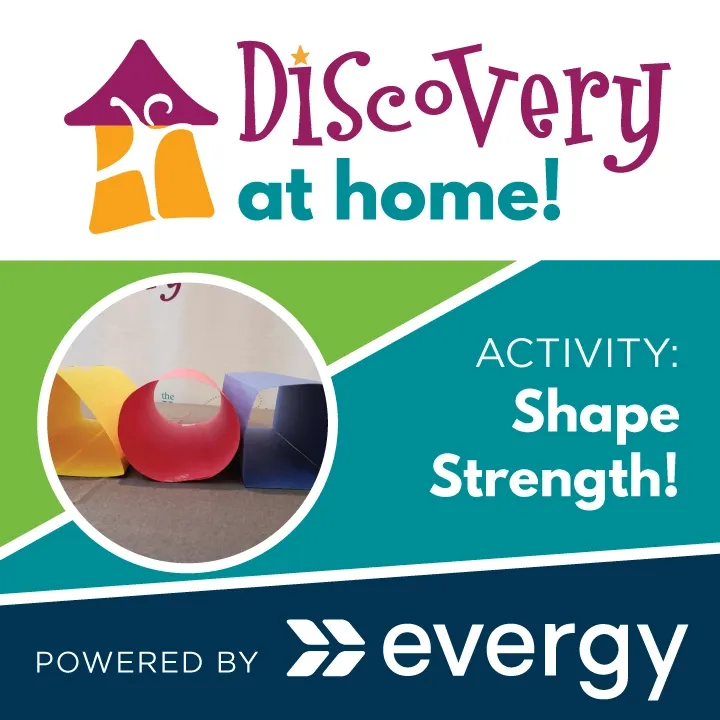How strong is a circle?
Test the strength of shapes with Caitlin Luttjohann, Director of STEAM Education at the Kansas Children’s Discovery Center. Experimentation is great for building engineering and critical thinking skills! In this activity, the shape plays an important role in the strength and durability of the structure. This activity is powered by our friends at Evergy.

What you need:
- Copy paper (at least 3 pieces).
- Tape.
- Books (2-6).
Directions:
- Use one piece of paper to create a triangular shape and tape the edge together.
- Use one piece of paper to create a circular shape and tape the edge together.
- Use one piece of paper to create a square shape and tape the edge together.
- Create a hypothesis. Which shape will hold the most books?
- Set the triangle shape up on end.
- Place one book on top of the shape.
- Add more books to the top of the shape until it cannot support the weight anymore.
- Repeat the test with each of the shapes.
- Determine which shape can hold the most books.
Ways to expand:
- Create more than one of each shape. Test each shape set to see if it changes the outcome. How do three triangular pillars compare to three circular pillars? What is the best configuration?
- Try to create multiple levels. Put more shapes on top of the book and another book on top of those pillars. How tall can you make the structure?
What kids learn:
- Basic engineering skills. Engineers solve problems with constraints, in this case, limited materials and specific shapes to test. They learn to solve problems by using the engineering design process: asking questions, coming up with solutions, building, testing and improving.
- Experimentation! When kids experiment, they’re learning how to learn. Failure is an important part of experimenting, so let kids try things that won’t work. It’s how they figure things out!
- Spatial or visual thinking. Being able to imagine the positions of objects and how they interact is an important skill for learning math.
Vocabulary:
- Hypothesis. A supposition or proposed explanation made on the basis of limited evidence as a starting point for further investigation.
- Observations. The action or process of observing something or someone carefully in order to gain information.